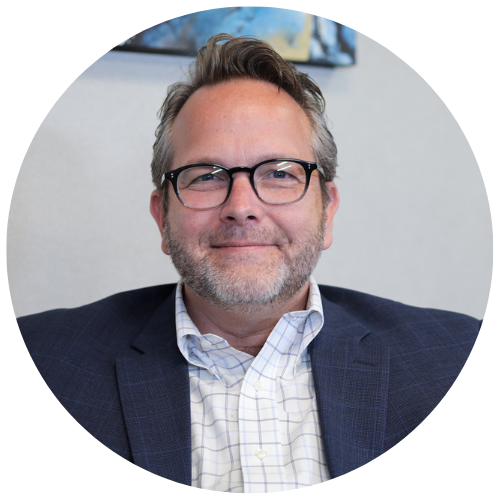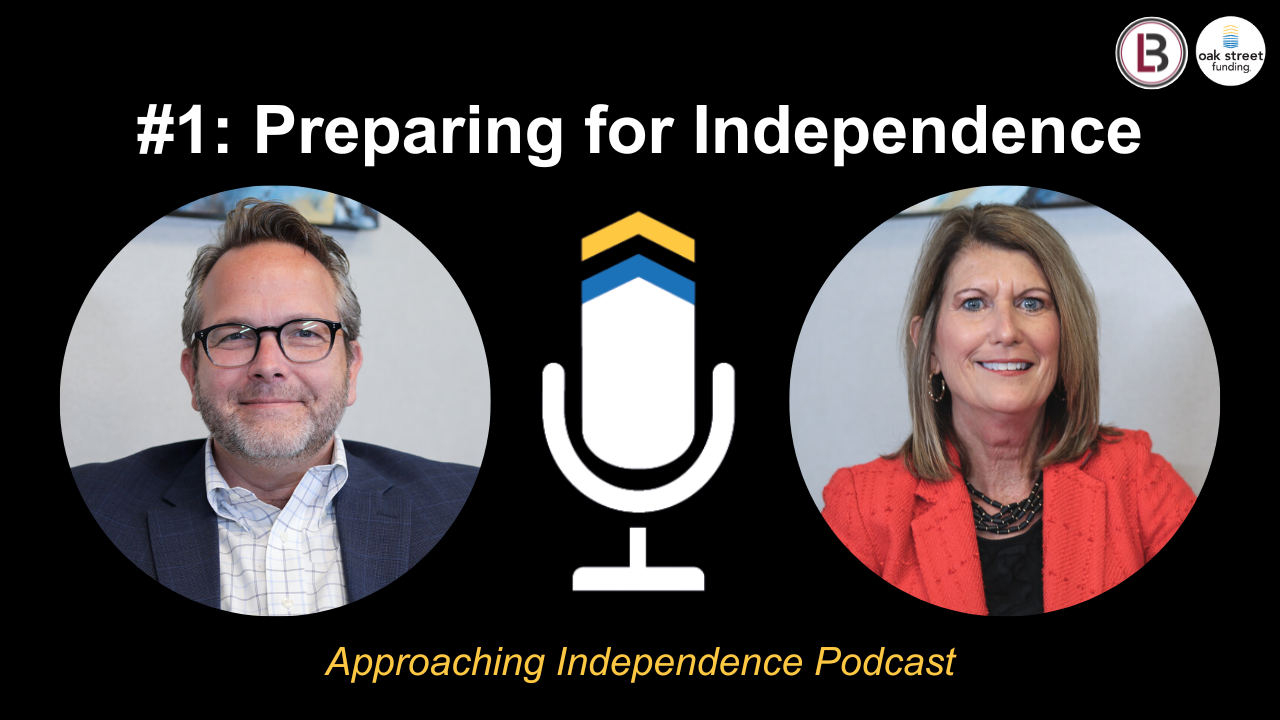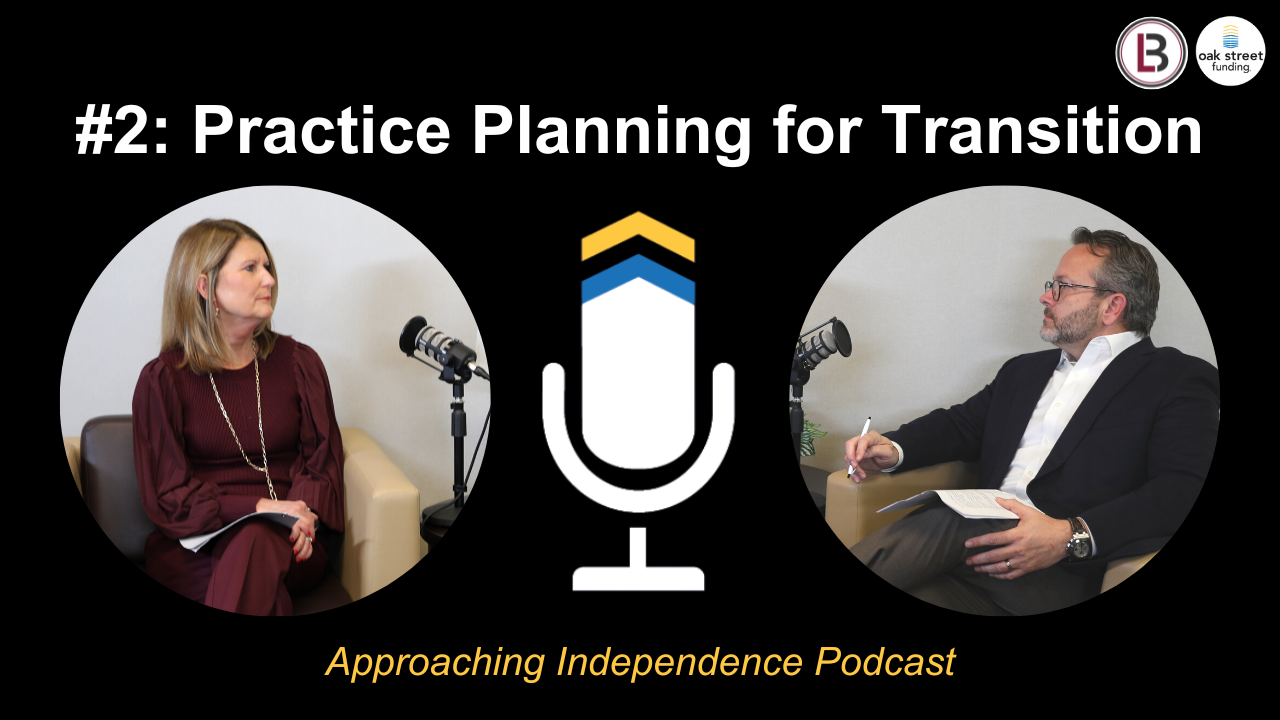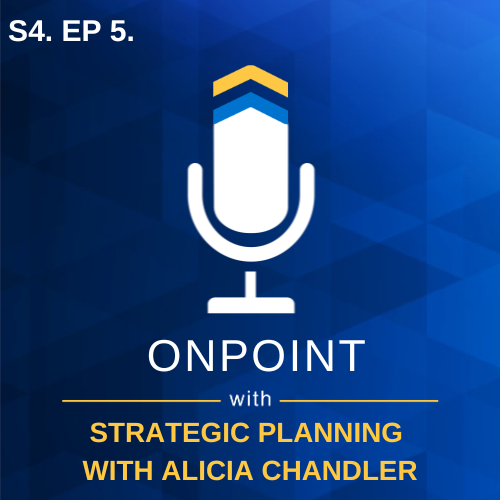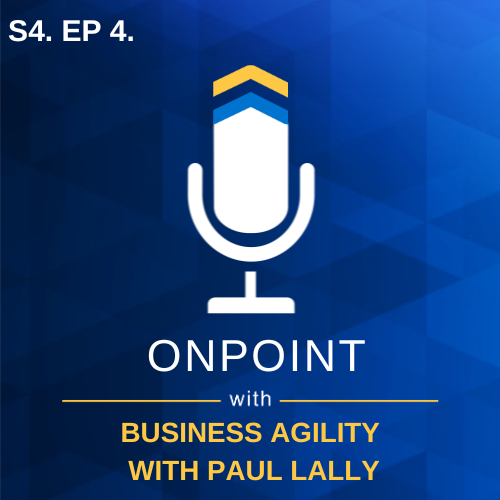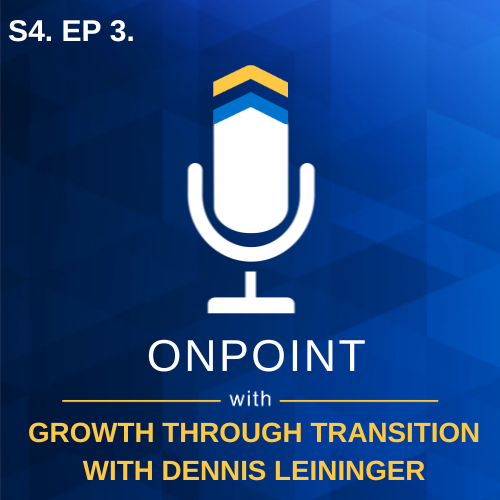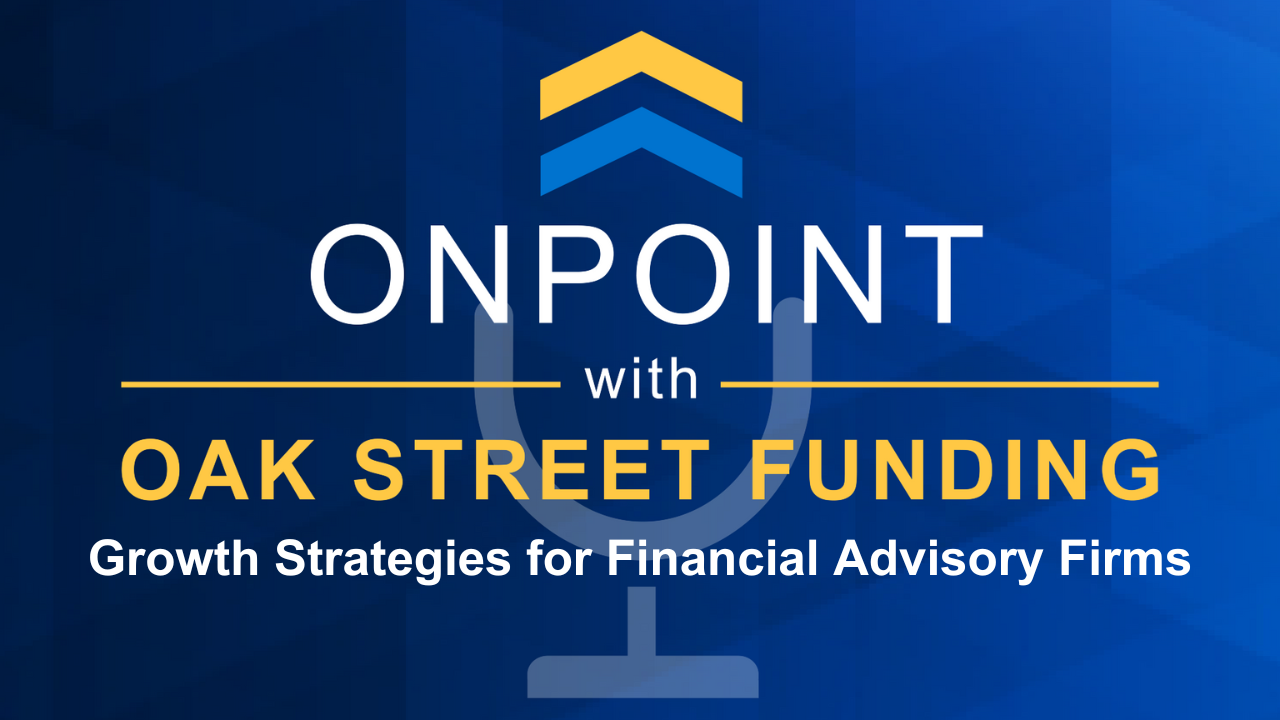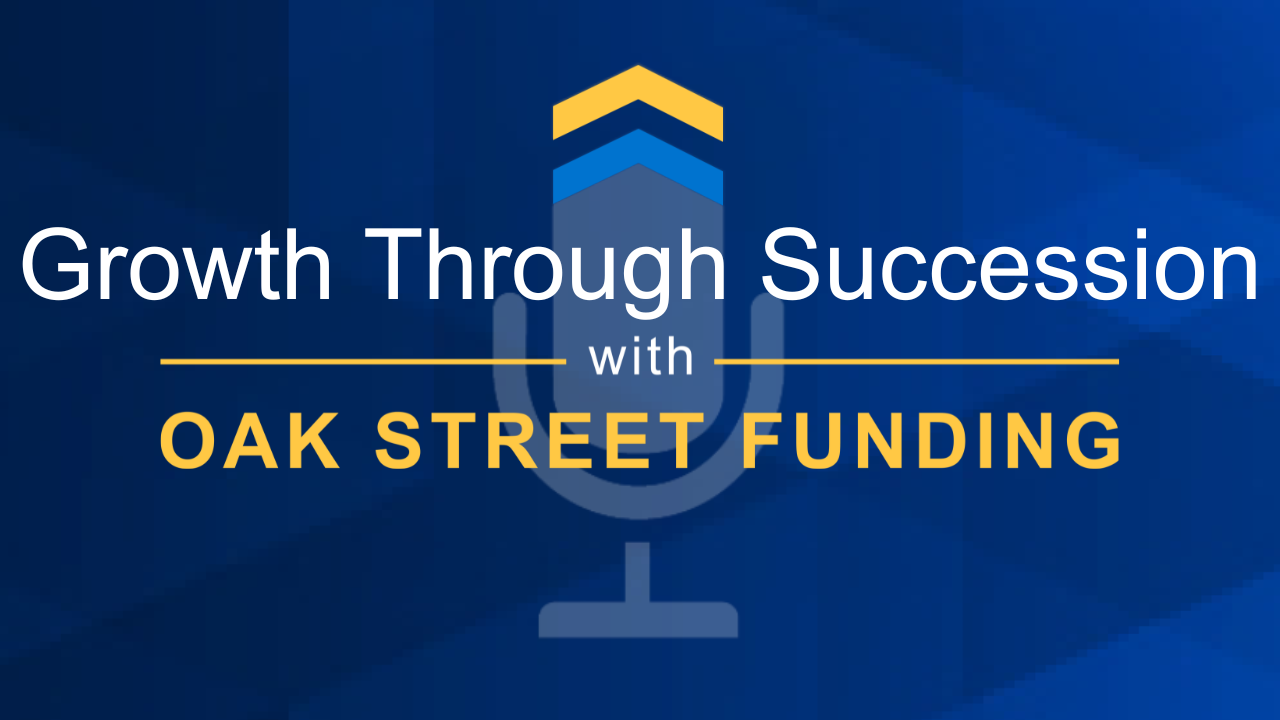Approaching Independence: Preparing for Independence with Bristal Lane Group
- 0.5
- 1
- 1.25
- 1.5
- 1.75
- 2
Susie McEuen: Hi, and welcome to this very special series spinoff from On Point with Oak Street Funding. I am Susie McEuen, Vice President of Strategic Market Sales at Oak Street Funding, where I focus on providing capital to RIAs and investment advisors. And I'm so excited to have Matt Reynolds, co- host of this new series, with me today. He is the president of Bristal Lane Group and a key resource for advisors. We are very excited to announce that Bristal Lane Group and Oak Street funding have teamed up to launch this podcast series for and about taking your advisor practice independent, Approaching Independence. We look forward to bringing you multiple episodes on this important topic. And to get started, I want to provide you with a high level of who Oak Street is. We're a non SBA lender. We are a conventional lender, which allows us to be a little bit more creative. We're a portfolio lender, and basically what that means is that we can keep your loan on our balance sheet, you make your payments to us. We don't sell your loans. And Oak Street funding, we've been around for over 20 years, we just celebrated our 20th anniversary and we're very excited about that. We are owned by First Financial Bank, which provides us the capital that we need, and we can lend up to $50 million. Our lending portfolio is in an excess of 900 million. And like I said, we will not sell your loan, you make your payments to us. And I'd like to now introduce Matt Reynolds, and can you tell us a little bit about Bristal Lane Group?
Matt Reynolds: Thanks, Susie. And thank you to Oak Street for allowing us to partner like this. Bristal Lane Group is really a consulting practice. First, our focus is on the financial industry. We work with individual advisors, broker dealers, RIAs, and a number of private fund managers across the country. And we're really broken into three different practice lines. Number one is compliance consulting, where we do everything from RIA and BD registration, to back office management and outsourced compliance and ops. Another part of our business is taxes. We do about 2,500 tax returns a year, and we do financials for over 50 broker dealers, RIAs and individual independent advisors. And then really, kind of what goes along with this is, a big part of our business is transitions. We work with a number of custodians as well as a number of different firms where we provide resources from simple project management to what we call business architecture, where we set up someone's business, we help them with their accounting and with all of their back office type of work, and really get them from the day that they leave whatever position they're in, to that first day when they're opening their own office.
Susie McEuen: That's great. Well, you and I have worked together, and I'm so excited about this series. Maybe tell the listeners how we came up with this series for basically going independent, or Approaching Independence.
Matt Reynolds: Sure. I think when we started talking about this the last time that we were together, the idea and the impetus was advisors, especially those who haven't spent a lot of time really doing their homework or understanding what going independent means, there's a lot of nebulous ideas. What does it really mean? And I think in a lot of cases people think it's simply a different way to earn, to basically be able to bill, or be able to make more, have your own business. When we talked about it, what we both realized was, there's a lot of opportunity here just to talk through our own experiences and be able to convey to anyone who's watching this, these are the different things to think about before you jump into going independent.
Susie McEuen: No, I appreciate that. And I think it's really important to know, because we're the lender, and we want these advisors to be prepared. And so maybe expand on that, how and what do you expect as far as helping them be prepared, and are they the right advisor to go independent?
Matt Reynolds: And it's important that you say that. There are some advisors who, they're able to do everything that they want to do for their clients, and they enjoy a good profitable business right where they're at. So going independent isn't for everyone, but when we get started with any team, there's just a handful of things that you need to be prepared for. So in future episodes we'll talk about vendors, and we'll talk about different things that you're going to have to be aware of as you go through your process. But upfront, we typically start with the most important is just preparedness. How do you start looking at if it's appropriate for you to be independent or not? Or to go to another firm? And a lot of that really starts with looking at the practice.
Susie McEuen: Well, I think also, it's important to know from our side is, the control. How they're going to handle their clients. And that's important as well as the value that they're going to get once they transition. I think the control, maximizing the value of their practice, is really an advantage, and they're going to end up earning more money in the bottom line.
Matt Reynolds: Yeah.
Susie McEuen: So I think that is really key, and that's what really sparks their interest on making that transition. So we get a lot of those calls upfront, before you get involved, and we know that it's important to get you involved because we got to work together to make sure this is the right fit for that.
Matt Reynolds: And I like the partnership that we have, where we're bringing different opportunities to one another, because I think together and then finding the right other vendor partners, that's the most important thing. So you mentioned it, right? Control and in a lot of cases, it's the economics, but I think what many advisors miss are the things that then change, when you go independent. I think you and I would both agree, it's not a purely economic decision, right? So you said control, being able to control how the client interaction occurs. I think we hear that a lot. But then, what changes? And we hear a lot of, it's not just, " I have to go from being a practice manager to being a business owner," but the culture of your whole practice and how you work together.
Susie McEuen: And I think you mentioned about the business owner. I mean, it opens up a whole new world, and I think it's really critical that they surround themselves with the right partners to make sure that everything goes the way it's supposed to. And I have talked to a number of different advisors that it may not be the right fit for them. They're more interested in having a back office to help support them. So what should an advisor do or know before they make that commitment? Because a lot of them are doing that, and before they're talking to us. So hopefully this podcast will help give them the ideas of what they need before they jump into the deep end of the pool.
Matt Reynolds: Okay. So I'll talk about the one that I think is most important, then you get to talk about what you think is most important. All right? Because we got to give examples, right?
Susie McEuen: Yeah.
Matt Reynolds: So I think the number one is recognizing the type of business that any advisor has. So it's easy to say, " I'm an advisor," or, " I manage high net worth clients." But every practice, as you know, is handled differently. And it's from where the advisor grew up and learned, to how they've interacted with their clients in the past and what they've been allowed to do. But for the most part, understanding your practice. Is it hybrid? Well, that kind of directs you to what you should be doing. Is it a case where you're purely advisory, and you're growing? Well, that's another decision point. Is it a case where really you're focused on trying to figure out your succession planning? So in a lot of ways it's just taking the time to really get to know your own practice, and be a bit critical of how you manage your own assets. So I'd say that's probably the most important from what we see. What about you?
Susie McEuen: Yeah, I think what's important and how we look at it from a lending standpoint, the first thing I always say, " Have you ever moved your book before?
Matt Reynolds: inaudible.
Susie McEuen: And because we're wanting to make sure that, especially if they're going from say, a wirehouse W-2, and they're going straight to RIA. Are those clients going to move? Are they going to follow? I mean, that's huge. And sometimes they take those baby steps, where they go from W- 2 to semi- independent, and then they go to RIA. And that gives us a little bit more of a comfort level, because they've moved their book before. But looking at their book, we look at the demographics of the book of business. What's the average age? Who are the top 10 clients? What's the investment philosophy for these clients? These things are important, that that advisor looks at their book to determine if it's going to actually all going to move the way that it should. And then looking at inside their shop, those people that work for them, are they going to move too? What kind of outside sources they're going to need, as far as help supporting? Those are the questions that we're going to ask, as far as being the lender.
Matt Reynolds: And your underwriting questions as the lender, I mean, those are exactly what every advisor should ask themselves before they even start contemplating it.
Susie McEuen: Right.
Matt Reynolds: So it's a good opportunity to, when they come to you, when they come to us, just being able to say, " All right, let's stop for a second. Why do you want to move?"
Susie McEuen: Yeah, absolutely. Why? And then it comes to the financials, as well. Yeah. So we key in, especially for lending money to help either pay off a non-unforgivable note, or maybe they need working capital to make this transition. It's important that we see the projections, realistic projections. What if 20% doesn't move, or 10%, or whatever? Are they going to be able to manage that cashflow, and how that's going to look like. And their personal lifestyle comes into play. So we look at the whole financial picture, them as an individual advisor, supporting their current lifestyle, how that's going to transition with their people coming in, their employees. As well as, holistically, the global cash flow of the business itself so they can continue to pay themselves.
Matt Reynolds: That makes sense.
Susie McEuen: Hopefully the goal is that they're going to make more money, as well.
Matt Reynolds: Do you ever, when you go through that process, is there ever a point in time where you say, " Honestly, you either shouldn't move, or you know what? Maybe this type of move makes more sense for you?" I mean, do you ever get to that point?
Susie McEuen: We have to be really careful, but somebody like Bristal Lane, you being Matt Reynolds, is where I go, " I think we should introduce you to someone that helps make these transitions, and let's all get on a call together." And I think we can get to that point to help them make that decision. I haven't actually, fortunately, knock on wood, I have not had to tell somebody, " You can't move."
Matt Reynolds: That's always a good thing.
Susie McEuen: Yeah, exactly. It has seemed to work out, but I do a lot of handholding myself, to make sure. Because the last thing we want to do, and we won't do this here at Oak Street, we are not going to put somebody in a position that is not right for them. You know, I think it'd be really good for us to give a good example of one that we've worked on. Obviously, keeping names confidential, but we just had some success that we recently transitioned an advisor that was at a wirehouse in the beginning. So that advisor transitioned to an RIA, became pretty much independent, but still there were some strings attached. And this advisor ended up with a non forgivable note. And so you brought me in, gosh, like eight months ago.
Matt Reynolds: It was a while.
Susie McEuen: Yeah. And I think we need to tell the listeners this. That's what's important is, these, it's a transaction, but it evolves. It takes time. And it's not going to be one of those situations where you call, you, being Bristal Lane, or Oak Street funding and go, " I need to close in 60 days," because there is a lot of mechanics behind it. And this advisor obviously came to you first, which was great, because then you introduced me and I've gotten to know this advisor for the last eight months. And so we worked together as a team, with her custodian, to make that transition. And so this advisor now is an RIA, and it just recently happened, and we provided the financing to help pay off that non forgivable note.
Matt Reynolds: And what I enjoyed was, to your point, it is the transition. When we get into independence, the transition is a time period. It's not a point in time. It's an over a period of time.
Susie McEuen: It's a journey.
Matt Reynolds: Right. And we saw, with that individual, they had life going on. They had things that they were doing, they still had family events that were going on. They had important decisions in their life. And being able to just roll with that was important. But I'd say there, and you'd probably agree with me here, it was all about communication.
Susie McEuen: Yes.
Matt Reynolds: On both sides.
Susie McEuen: Yes.
Matt Reynolds: So that when being asked the question, or when getting into a position where someone wants to take that step, being able to just rely on someone to just listen, hear them. I think that was really important to this individual.
Susie McEuen: And the other piece too, this advisor was really well- prepared. Personally, mentally, and I mean, they had their personal situation, which we look at to make sure, again, is this going to work? And this advisor had moved their book before.
Matt Reynolds: With great success.
Susie McEuen: Exactly. I mean, I think it was like a hundred percent of it. A good example for what we like to see, as far as success.
Matt Reynolds: But you said something that was important. Not always an economic decision as we've talked about, but it is an emotional decision. And emotionally, this individual had made that commitment in their mind to make the move. Then it was just trying to find what was the best process for them.
Susie McEuen: Right. So there are sometimes mistakes that have been made during this process. So Matt, maybe have you experienced anything, and maybe share as examples that our listeners can avoid in the future?
Matt Reynolds: Sure. We have seen where, and this was a difficult one, a custodian brought us an opportunity. And as we started spending time, we went back to the looking at your book, what type of book do you have? What do you really use? And once we spent that time, we went through that process, what we found out was the custodian that they had been introduced to us from, couldn't do a certain percentage of the business. Now it wasn't a huge amount, so in their minds, " Okay, well I can't do 10% of that business," but what it turns out to be is that 10% is across their largest, most important relationships. So at that point, we had a decision to make. Either the advisor was going to stop being able to provide that to their client, or more importantly, we got on a phone call with the custodian, trying to figure out how to create that solution. And at the end of the day, and I will say that the major custodians really do work for their advisors, the answer was, " Maybe it would be better served at a different custodian." And that was one of those, I mean, that was a big dramatic event. But I will say that that was one where we had all gotten pretty far down the road before saying, " Wait, hold on. How are we going to execute that business?" So I'd say that one, for me, was probably the most relevant. What about for you?
Susie McEuen: Yeah, I would say that it's them not being quite as prepared as they should. And their expectations is getting it done sooner than later. But then, they have not surrounded them themselves with a consulting firm, and perhaps having the right custodian set up, and thinking about the entire lending process. Most of the advisors that we work with, a lot of them have not experienced financing before.
Matt Reynolds: Sure.
Susie McEuen: And so, it is a big learning curve. And that's why I think we do a great job here at Oak Street Funding, because all of our services are under one roof. Here we are, today. I mean, have in- house legal, servicing, processing. And so I'm the quarterback that helps them get from point A to point Z, and beyond that. And so communication, like you said earlier, is very critical. But setting those expectations upfront, and just the advisor that we worked with before, we did that upfront. You did, too. And I think that's the recipe for success. Working with, we have to work with a number of different vendors. And so you obviously have had a lot of good experiences, and so have I, with resources. And so, maybe just share any comments that you might have, as far as what has been helpful with other resources that you've worked with.
Matt Reynolds: Sure. I would say, and again, we have a good working relationship, but I think one of the most important things is, I know that when we make an introduction to you, you guys have been, you meaning Oak Street, are in the business. So it's different saying, " I'm going to take out," I don't know, " an SBA loan, or this type of loan, or a personal loan." You actually understand what an advisor goes through, what they need to do to get free, and what they're kind of buying into when they start their own business. So from our perspective, it's surrounding ourselves with great, just other partners.
Susie McEuen: Who understand the business.
Matt Reynolds: Yeah. And I don't know any other way to say it, other than partners.
Susie McEuen: inaudible.
Matt Reynolds: Because we end up working together-
Susie McEuen: Yeah.
Matt Reynolds: ... just likewe have in the past with a custodian process, or an exiting firm process, whatever it is. You end up having to really rely on each other.
Susie McEuen: Right.
Matt Reynolds: So what I'd say is, probably one of the most important things, is making sure that from a vendor perspective, from a partner perspective, it's people who know exactly what your business looks like and how to get you to where you want to be.
Susie McEuen: Right, and there's so many consultants, there's so many lenders out there. And I think the listeners need to really understand is that, whoever they work with, that they understand how revenue works with a RIA, if they're 1099. Because, I've been in the lending business for a long time, and banks will think they understand how to do the financing, but it's really important that they understand that it's a cash flow type business. And that the lender, we can't take a building as collateral. It's future fee revenue of the book of business. And so, understanding what makes up that book of business is going to be really important. Some lenders out there will put a lien on a house. That's something that we don't, won't do. It's the business that we look at, as far as the cashflow. Well, Matt, hey, thanks for sharing these resources with us. And I'd like to add just a reminder that Matt at Bristal Lane Group, and us at Oak Street funding, are also great resources for whatever stage of independence you are at. We can be part of your journey from the beginning, even before you take out the financing, which I highly recommend, to reach out to us in the beginning and reach out to Bristal Lane to help you prepare for that day when that day comes. And sometimes that may take six months, it may take long as 18 months. inaudible do you agree?
Matt Reynolds: Sure. Yeah, no, I agree. And I think an important part is reaching out, getting information, just learning about the process. It doesn't cost you anything. It just gives you an opportunity, really, to learn. And I think one of the things that we have in common is, it's really all about the relationships we develop. So we would love to be part of that, kind of helping an advisor make the right decisions, but also getting started in the ground floor. So Susie, we talked about different resources that people need, but from your experience, when an advisor's ready, or they think they're ready, or they just want to learn more, what are the things that they need to come to you prepared with, just to be able to have that initial conversation?
Susie McEuen: I think just making that phone call and starting that conversation. Have your house in order. I always say that, meaning that, if you're ready to start that move, make sure your personal situation, because we do look at minimum credit score. We look at the ADV, and it is somewhat about character, and we will help generate some of those questions as well. But have an idea of what you think you're going to end up doing, as far as a timeline. This may be a little bit too soon, but projections are going to be really important. A lot of times they're like, " Oh, I need to do projections?" And I'm like, " The reason we want projections is because you're going to look a lot different than you do now," especially if you're coming from W- 2. Those expenses, they need to understand. That's why we need your help.
Matt Reynolds: And we spend a lot of time on the proforma, or helping an advisor figure out, what does future state look like?
Susie McEuen: Yeah.
Matt Reynolds: And that's an important part, where we spend a lot of time together.
Susie McEuen: And this is kind of simple, but we want them to have at least five years experience.
Matt Reynolds: Sure, yeah.
Susie McEuen: We like the seasoned advisors that have been around, and they've had their clients for a long time, but they're ready to take it to the next level. And so that phone call can always be way in advance, and I think it's the best way for them, the advisor, to get to know us. And I always say this, " It gives us a chance to get to know you," and then get you involved, as well.
Matt Reynolds: All right. So one more question. When it comes to, we'll be talking about structures and different types of how to be in business as an advisor in one of our future episodes. But right now, if an advisor is considering making a move and they want to maybe perhaps buy another book or go into buying an RIA to aggregate assets, is that something that you guys help with?
Susie McEuen: Oh, absolutely. We want to build a long- term relationship with our borrower, so it's not a one stop, one transaction situation. And I end up asking the question, what is your five to 10 year timeline? What are your goals? What are you trying to achieve? And I get a sense of, we provide succession, financing, working capital, expansion, and obviously acquisition. So we actually, I would say we probably do, out of all of our borrowers, one out of three transactions is a second transaction to the borrower. So 33% of my borrowers come back for something else, as far as needing financing, and being a portfolio lender makes it a lot easier because we've all seen their financial information, we've got most of it, and we're keeping updated. It's a business loan, so they got to update their financials quarterly, or on an annual basis, depending on the size of a loan. And our underwriting team, our processing team goes, " Yes, we know this advisor. We've been working with them," so the second and third transaction is much easier, and we can turn that around really quickly. We want to grow with them. That is the whole point, and I hope we get to talk about that more in the future episodes.
Matt Reynolds: In the future, yeah.
Susie McEuen: Yeah.
Matt Reynolds: I think one of the teasers will be, something I found out is, as you guys are helping people get that financing, you're also spending time with the economics of the deal itself.
Susie McEuen: Yes.
Matt Reynolds: So in some cases, when an advisor will come to us and say, " I have this deal and I want to get this done, do you think it's a good deal?" Well, we have to kind of go off of history. What are we seeing in the industry, and things like that. You guys come at it from a purely economic perspective. Does the deal make sense? And I think that's something that our viewers hopefully will get a chance to see in the future.
Susie McEuen: Absolutely. Great stuff.
Matt Reynolds: Yeah. No, I'm excited. This has been great. Again, I'd like to take the time to thank you, Susie, thank Oak Street for putting together and working together to create something so important and valuable for our advisors who are approaching independence.
Susie McEuen: Well, thank you, Matt. This has been so fun. It was really fun working on this last transaction together, and we look very forward. Stay tuned for more from the Approaching Independent series, and send us your questions that you might have, and that way we can answer in future episodes.
Matt Reynolds: Yeah, we're looking forward to the next episode. It'll be coming out soon. Again, what I'd ask is, don't forget to subscribe to these podcasts, as well as leave a review and let us know how we're doing.
Susie McEuen: Thank you so much.
Matt Reynolds: Thank you.
Susie McEuen: It's been a pleasure.
Matt Reynolds: Good talking to you.
DESCRIPTION
We are excited to announce that Bristal Lane Group and Oak Street Funding have teamed up to launch this podcast series for, and about, taking your advisory practice
independent called Approaching Independence. We look forward to bringing you multiple episodes on this important topic.
Today's Host
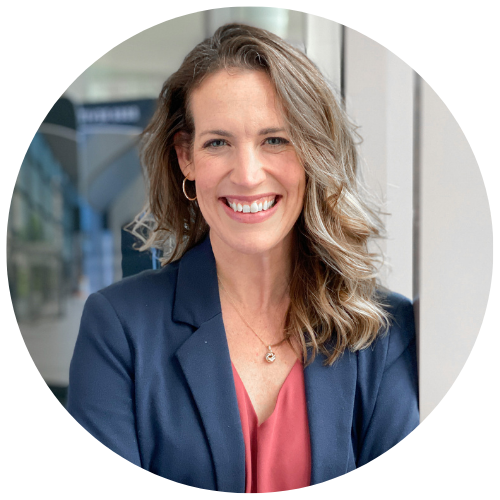
Bridget Haight
Today's Guests
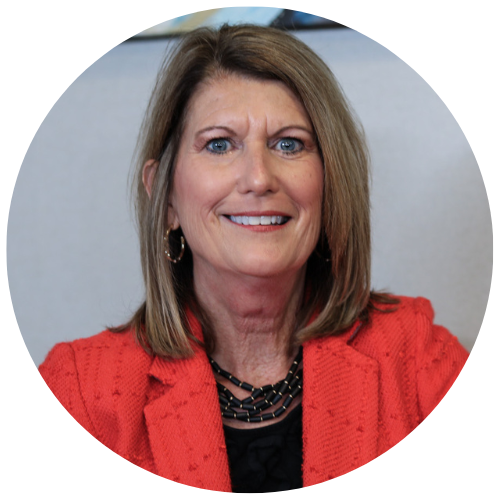
Susie McEuen
